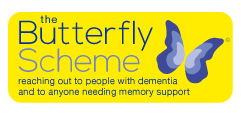Chatting with a friend whose mum lives with dementia, a topic arose which many of you will be familiar with. My friend’s mum had had what may be described as a hallucination; she’d certainly seen something which wasn’t actually there.
For her, this was very likely to be due to a urinary tract infection (UTI); she had a history of those. My friend rang the local clinic and ended up speaking to a new GP, who asked her to bring a urine sample to the practice. Now then, many of you will realise that obtaining a urine sample from someone living with dementia isn’t always as straightforward as all that – but what’s absolutely clear is that anyone with a UTI is more likely to fall and will only become more likely to do so if the infection is left unchecked. My friend didn’t want to argue with the GP, but – predictably – there ended up being a significant delay (and a lot of stress) before the sample was obtained. Yes, the lady did indeed have a UTI and once that was established, antibiotics were issued.
Carers – please bear in mind that your experience and expertise are of great value. My friend now realises that in future she could question whether a very short course of antibiotics could initially be issued, if a sample really can’t be obtained in good time and the existing situation is dangerous for the patient. As ever, it’s a case of valuing your own insight and talking the situation through with the healthcare professional – and that doesn’t mean in any way disrespecting what they’ve said. If you simply relate any relevant stories about what’s gone on in the past, the healthcare professional can use that history to better inform their own decision process – and mutual respect can be maintained.
The same situation exists when liaising with healthcare professional in a hospital setting; you have what’s possibly a lifetime of experience of that person, whereas they only have the benefit of a very limited time of contact and the records may not readily highlight issues which you know all too well. As long as you remain conversational and calm, explaining that you feel you can offer further information which be useful, everyone can benefit – especially the patient.
